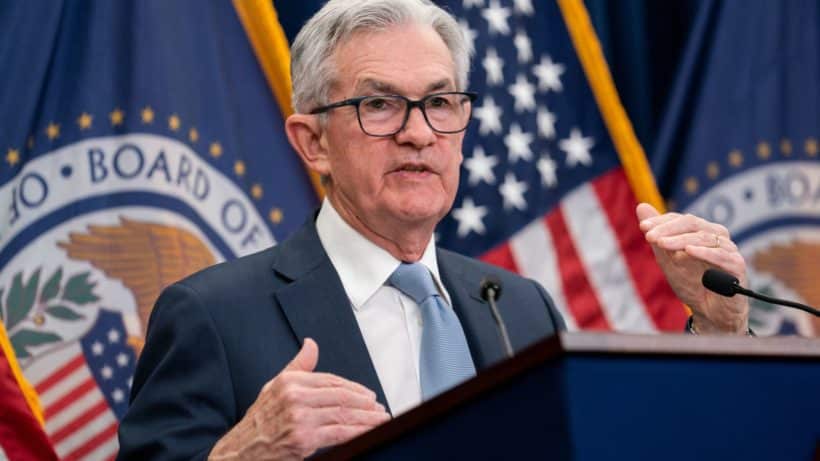
Federal Reserve Chairman Jerome Powell on Tuesday emphasized the need for the central bank to be free of political influence while it tackles persistently high inflation.
In a speech delivered to Sweden’s Riksbank, Powell noted that stabilizing prices requires making tough decisions that can be unpopular politically.
“Price stability is the bedrock of a healthy economy and provides the public with immeasurable benefits over time. But restoring price stability when inflation is high can require measures that are not popular in the short term as we raise interest rates to slow the economy,” the chairman said in prepared remarks.
“The absence of direct political control over our decisions allows us to take these necessary measures without considering short-term political factors,” he added.
Powell’s remarks came at a forum to discuss central bank independence and were to be followed by a question-and-answer session.
The speech did not contain any direct clues about where policy is headed for a Fed that raised interest rates seven times in 2022, for a total of 4.25 percentage points, and has indicated that more increases likely are on the way this year.
While criticism of Fed actions by elected leaders is often done in quieter tones, the Powell Fed has faced vocal opposition from both sides of the political aisle.
Former President Donald Trump ripped the central bank when it was raising rates during his administration, while progressive leaders such as Sen. Elizabeth Warren, D-Mass., have criticized the current round of hikes. President Joe Biden has largely resisted commenting on Fed moves while noting that it is primarily the central bank’s responsibility to tackle inflation.
Powell has repeatedly said that political factors have not weighed on his actions.
In another part of Tuesday’s speech, he addressed calls from some lawmakers for the Fed to use its regulatory powers to address climate change. Powell noted that the Fed should “stick to our knitting and not wander off to pursue perceived social benefits that are not tightly linked to our statutory goals and authorities.”
While the Fed has asked big banks to examine their financial readiness in case of major climate-related events such as hurricanes and floods, Powell said that’s as far as it should go.
“Decisions about policies to directly address climate change should be made by the elected branches of government and thus reflect the public’s will as expressed through elections,” he said. “But without explicit congressional legislation, it would be inappropriate for us to use our monetary policy or supervisory tools to promote a greener economy or to achieve other climate-based goals. We are not, and will not be, a ‘climate policymaker.’”
The Fed this year will launch a pilot program that calls for the nation’s six biggest banks to take part in a “scenario analysis” aimed at testing institutions’ stability in the event of major climate events.
The exercise will take place apart from the so-called stress tests that the Fed uses to test how banks would fare under hypothetical economic downturns. Participating institutions are Bank of America, Citigroup, Goldman Sachs, JPMorgan Chase, Morgan Stanley and Wells Fargo.

